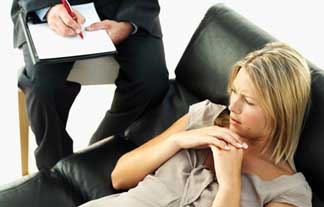What To Expect After a Bipolar Diagnosis
I have always felt different from everyone else, alienated, alone. As a young child, I would react to things, even tiny things, in such intense ways, and I would look at other people and wonder: did they feel things this strongly, too? Did they fall to the ground crying when they saw a dead butterfly on the sidewalk? Or have sudden intrusive thoughts of swerving and crashing their car in a wall?
A Bipolar Diagnosis May Explain A Lot
At some point, I became severely depressed. I don't know how it happened, or when it snuck up on me, but it was there. This giant hard knot in the pit of my belly. Some days would be worse than others. Some days, it would swell up into my chest and prevent me from breathing, and other days I could push it aside. I, oftentimes, thought about suicide and hurting myself but at that age, I never acted on it. I only imagined.
At some point after high school graduation, I stopped sleeping. It was hot and humid and sticky -- like any other summer in Virginia -- and without a single conscious thought and without understanding why, I started cleaning my bedroom. And then the hallways and spare bedroom, both bathrooms, linen closets. I cleaned the entire house from floor to ceiling over the span of a week, never sleeping. I feel as if I may have repressed some of the memories. I feel as if a huge chunk of time is just missing, clouded over by fog.
It came as no surprise when I first sought treatment that I received diagnoses of bipolar II and obsessive-compulsive disorder.
Emotions Attached to Bipolar Diagnosis
 I think this feeling, this fog, is one of the most difficult things to work around when first beginning treatment. It's hard sitting in your first therapist's office and trying to figure out what to say when asked, “how are you feeling?” or “what brings you here?” How do you even begin to answer this? How do you describe that dark knot in the pit of your belly? Or the severe mania that sometimes makes you so explosive and impulsive that you drive dangerously, snap and yell at loved ones, or run on little sleep because you just don't need it? If you're like me, it's incredibly difficult to even begin to identify your emotions.
I think this feeling, this fog, is one of the most difficult things to work around when first beginning treatment. It's hard sitting in your first therapist's office and trying to figure out what to say when asked, “how are you feeling?” or “what brings you here?” How do you even begin to answer this? How do you describe that dark knot in the pit of your belly? Or the severe mania that sometimes makes you so explosive and impulsive that you drive dangerously, snap and yell at loved ones, or run on little sleep because you just don't need it? If you're like me, it's incredibly difficult to even begin to identify your emotions.
After Your Bipolar Diagnosis
- First, talk with your doctor about a bipolar treatment plan. This treatment plan can include talking about medications and therapy, goals for regulating your moods, as well as working through personal obstacles in your life.
- Learn all you can about the illness and talk with loved ones about what your bipolar diagnosis entails. Know what your “triggers” are, and what to look for when you feel like you're getting too depressed, too manic, or too anxious. Learn about different kinds of treatment, such as cognitive behavioral therapy and dialectical behavioral therapy.
- Create a realistic sleep schedule and exercise schedule. It has been proven that regular sleep and exercise helps regulate moods, and increases awareness during the day.
- Create a crisis plan. Hopefully this will never have to be used, but it is always a good idea to have a crisis plan around your house where your loved ones have access to it, and also have one in your wallet. This plan can include things such as what to do when you feel like you're in a crisis (such as removing all sharp objects, going out for a walk, or reading). Also include all medications you are on, and contact numbers for those you can talk to.
- Journal! Life gets busy, and things come up, but I find that making time to journal is essential in keeping myself balanced. Keep a mood journal that tracks your daily moods, including mixed states, medication dosages, amount of sleep, anxiety levels, and environmental and life changes that may contribute to anything you are feeling. This will help you and you doctor analyze any patterns, and can tailor your treatment plan accordingly. We have a really great mood journal here at HealthyPlace.
- Finally, be patient and gentle with yourself. As a friend once told me: you are your own best advocate.
You can also find Alexa Poe on Google+, Facebook and Twitter.
APA Reference
Poe, A.
(2013, June 3). What To Expect After a Bipolar Diagnosis, HealthyPlace. Retrieved
on 2026, January 18 from https://www.healthyplace.com/blogs/bipolarvida/2013/06/what-to-expect-after-a-bipolar-diagnosis